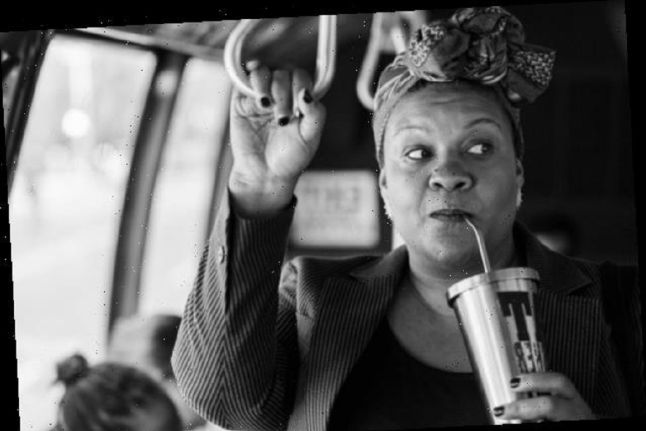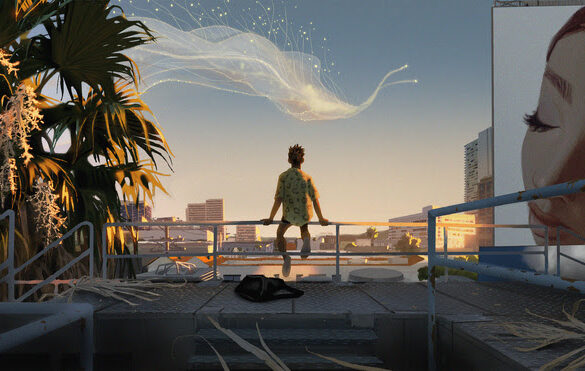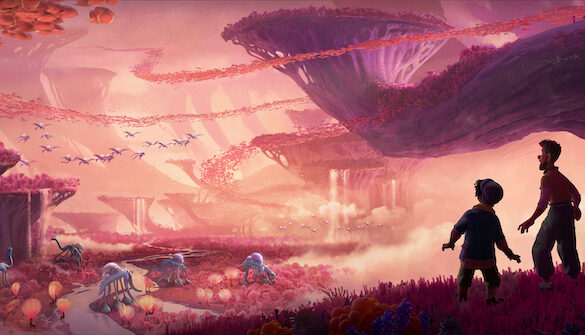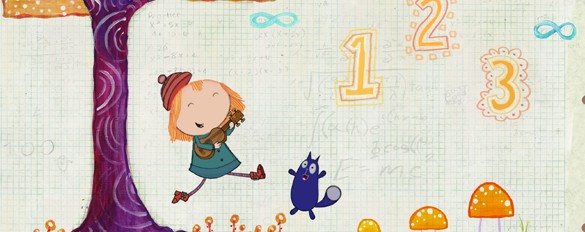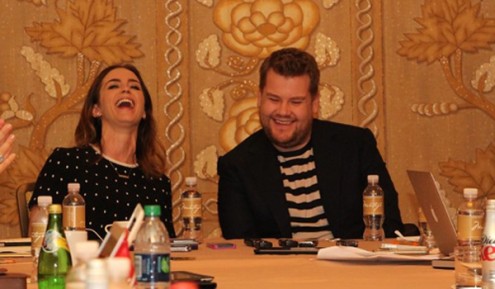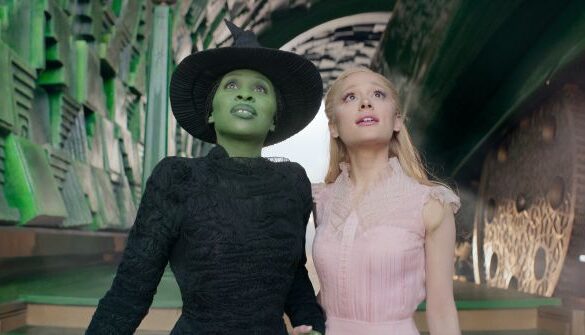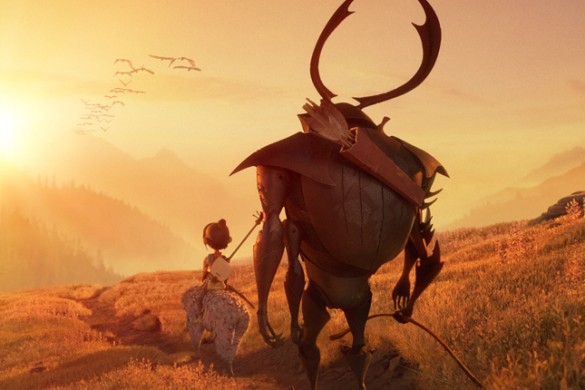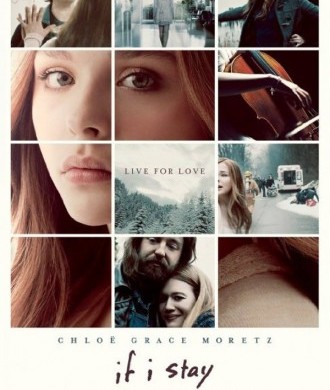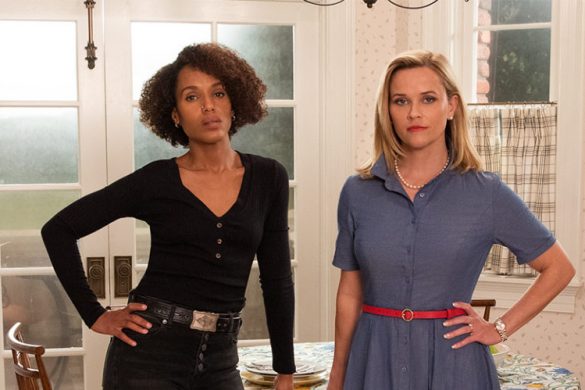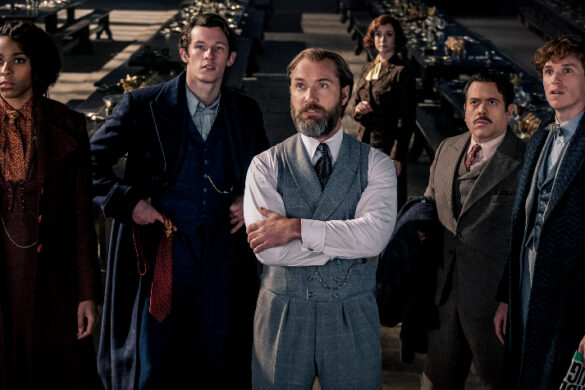Radha Blank’s ‘The Forty-Year-Old Version’ is no ordinary tale of a fortysomething-year-old Black woman rediscovering her voice. It is a tale about never comprising your artistic expressions and embracing the idea that it’s never too late to reinvent yourself. And all of that is told through a noir lens of New York that is evocative filmmaking.
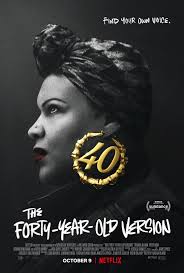
The film is a personal one for Blank, who writes, directs, and acts, as it is based on her experiences as a struggling artist who is on the verge of turning 40. Though she may have been the recipient of the coveted “30 Under 30” Award, much of Blank’s life is spent teaching students about stagecraft and her stage work reaching as high as workshop theater.
Though Blank’s best friend and agent, Archie (Peter Kim), tries to help her expand her network, she finds it increasingly difficult to get her work into production because the world of playwriting, dominated by white males. Her play centers on the subject of how gentrification is having an effect on a Black-owned grocery store in Harlem. It may be an authentically Black story written by a Black woman. Which is something to be celebrated. But the gatekeepers questions if a Black woman actually wrote her story. Fed up all of it, Radha decides to make a career change in her life and pursue hip-hop.
Blank eventually finds D (Oswin Benjamin), a local music producer for the Harlem neighborhood, to help craft her music. While she is talented, the work is unrefined, and her first gigs are met with criticism and ridicule. But as soon as she starts to find her groove, Archie tells her that a producer she scorned is willing to work on her play with her. Now she finds herself in a position where she has to choose between the two arts that she loves. One that she has been working at for as long as she can remember, and the other where she can be as free and expressive as she wants to be.
Finding out that she can finally produce her work comes at a price, though. She will have to compromise that story by accepting the changes from those who don’t have a voice or experience. These people try to punch up the work by adding more white characters and Black stereotypes to Blank’s story. Something of which frustrates the playwright.
More of these problems bleed throughout the film. Blank grows more irritated to see her work change. She finds herself reluctantly sacrificing her love of being able to rap to get her play off the ground. We see her hang up on D numerous times. Other times she questions herself if she is able to be a rapper. Despite these struggles, D encourages Blank to pursue hip-hop. The two would visit hip-hop night clubs where local artists do lyrical battles about life. Of course, this sort of art truly speaks to her in a way that will help shape her future herself and influence an important life decision.
As you may see, ‘The Forty-Year-Old Version’ is a bit of a play on Judd Apatow comedy’s The ‘Forty-Year-Old Virgin,’ both in length and title. The comedy does have its moments that will ring true to those who have lived what Blank’s character is going through. Simultaneously, it is too long for its own good and may have benefitted from some runtime slimming.
Radha Blank’s The Forty-Year-Old version is no ordinary tale of a fortysomething-year-old Black woman rediscovering her voice. It is a tale about never comprising your artistic expressions and embracing the idea that it’s never too late to reinvent yourself. And all of that is told through a noir lens of New York that is evocative filmmaking.
The film is a personal one for Blank, who writes, directs, and acts, as it is based on her experiences as a struggling artist who is on the verge of turning 40. Though she may have been the recipient of the coveted “30 Under 30” Award, much of Blank’s life is spent teaching students about stagecraft and her stage work reaching as high as workshop theater.
Though Blank’s best friend and agent, Archie (Peter Kim), tries to help her expand her network, she finds it increasingly difficult to get her work into production because the world of playwriting, dominated by white males. Her play centers on the subject of how gentrification is having an effect on a Black-owned grocery store in Harlem. It may be an authentically Black story written by a Black woman. Which is something to be celebrated. But the gatekeepers questions if a Black woman actually wrote her story. Fed up all of it, Radha decides to make a career change in her life and pursue hip-hop.
Blank eventually finds D (Oswin Benjamin), a local music producer for the Harlem neighborhood, to help craft her music. While she is talented, the work is unrefined, and her first gigs are met with criticism and ridicule. But as soon as she starts to find her groove, Archie tells her that a producer she scorned is willing to work on her play with her. Now she finds herself in a position where she has to choose between the two arts that she loves. One that she has been working at for as long as she can remember, and the other where she can be as free and expressive as she wants to be.
Finding out that she can finally produce her work comes at a price, though. She will have to compromise that story by accepting the changes from those who don’t have a voice or experience. These people try to punch up the work by adding more white characters and Black stereotypes to Blank’s story. Something of which frustrates the playwright.
More of these problems bleed throughout the film. Blank grows more irritated to see her work change. She finds herself reluctantly sacrificing her love of being able to rap to get her play off the ground.We see her hang up on D numerous times. Other times she questions herself if she is able to be a rapper. Despite these struggles, D encourages Blank to pursue hip-hop. The two would visit hip-hop night clubs where local artists do lyrical battles about life. Of course, this sort of art truly speaks to her in a way that will help shape her future herself and influence an important life decision.
As you may see, ‘The Forty-Year-Old Version’ is a bit of a play on Judd Apatow comedy’s The ‘Forty-Year-Old Virgin,’ both in length and title. The comedy does have its moments that will ring true to those who have lived what Blank’s character is going through. Simultaneously, it is too long for its own good and may have benefitted from some runtime slimming.
There is something to be said about having that your voice robbed of you by outsiders. While Blank’s story may not resonate with me deeply, I tend to care about those stories and more so when it comes from those who have a connection to those cultural nuances.
The camera work is more than just a snapshot of life, it’s Blank’s perspective as a struggling artist trying to get her voice out there while also discovering that it is never too late to reinvent yourself. Shot in black and white and 35mm, the film’s shaky cam puts us into the story. It’s as if you were right there watching Blank make every single decision that would change her life, both good and bad. The various shots of New York, from the local neighborhood to the cool nightclubs that is not only authentic but very noir.
Ultimately, the film is about the gatekeepers in our lives that prevent us from being honest with ourselves. To see Blank come alive through the hip-hop sessions and words of affirmation by D says something about progression. Her words are like fire, every rhyme she spits out more commentary fodder for the current life. And hip-hop support system gives her the strength and courage to do what is right by her, and no one else. If anything, ‘The Forty-Year-Old’ Version is a one hilarious and poignantly great start to Blank’s promising career as a film director.

